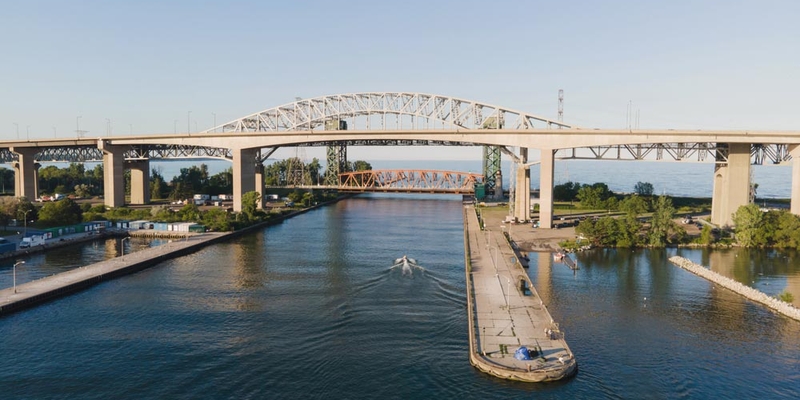
If you are not redirected within 30 seconds, please click here to continue.
Samedi: 10h – 16h HAE

If you are not redirected within 30 seconds, please click here to continue.
If you are not redirected within 30 seconds, please click here to continue.
- Since December 15, 2020, 81% of adults in the province have gotten their first dose of a COVID-19 vaccine and 69% are fully vaccinated.
- The City of Hamilton and surrounding region has many unsung virtues and is a terrific place to visit and explore.
- If it’s been a few months since you drove regularly, it’s a good time to review your car insurance policy and coverages.
Increasing vaccination numbers are one of many reasons why Ontario announced on July 16 it is moving to the third step of its economic reopening plan. It’s welcome news.
Since December 15, 2020, 81% of adults in the province have gotten their first dose of a COVID-19 vaccine and 69% are fully vaccinated. Meanwhile, 65% of young Ontarians between the ages of 12 and 17 have received a single dose and 42% are fully vaccinated.
Though it may be too soon for a victory dance, the province appears to be beating back the threat posed by COVID-19. However, step three is not a full reopening, and the province will monitor infection rates in the weeks that follow to determine how the loosening restrictions impact COVID cases.
Step three of Ontario’s reopening includes:
- Wearing a mask or face covering over the mouth, nose, and chin when attending an indoor event and keeping two metres away from individuals who do not live in the same household.
- Outdoor social gatherings are restricted to up to 100 people.
- Outdoor spectator limits for things such as live sporting events are capped at 75% capacity or up to 15,000 people, depending on which number is smaller.
- Indoor sports, recreational facilities and gyms can operate at 50% capacity to a maximum of 1,000 people (whichever is less).
- Indoor concert venues, cinemas, and theatres are allowed to open at 50% capacity to a maximum of 1,000 people.
- Museums, art galleries, aquariums, and casinos may operate at 50% capacity indoors and 75% outdoors.
- Indoor and outdoor dining and retail stores are limited to the number of people who can maintain two metres distance from one another.
Despite the necessary, ongoing public health restrictions, there is room for optimism. Step three gives Ontarians the opportunity to get out of the house, explore their surroundings, and socialize with others again.
Which brings us to the City of Hamilton and surrounding region, which has many unsung virtues and is a terrific place to visit and explore. The city has outstanding restaurants and a thriving arts and culture scene. It’s a worthy destination for your next road trip.
On that note, here are a few family-friendly things you can do in Hamilton in August:
- The Gage Park Greenhouse. This fully accessible greenhouse features a collection of subtropical plants, unique species, and palm trees. It also includes waterfalls, ponds with fish, turtles, and waterlilies. There’s also a rose garden in the centre of Gage Park, and the park is built in a style reflective of the 1920s. It is one of Hamilton’s most iconic, historical, and cultural landscapes.
- Albion Falls. Shutterbugs rejoice! Albion Falls is one of the most picturesque waterfalls in the region. Standing 18 metres wide and 19 metres tall, it cascades over the Niagara Escarpment, and is viewable from two public viewing platforms. There’s a 6 km leisurely hiking trail around the area, as well as a cycling route that runs from downtown Hamilton to the Falls.
- Hamilton Farmers’ Market. Open year-round on Tuesdays, Thursdays, and Fridays from 9 a.m. to 4 p.m., and on Saturdays from 8 a.m. to 4 p.m., this indoor farmers’ market located in Jackson Square features artisans, bakeries, delis, florists, wine, and of course, a remarkable selection of locally grown produce, meats, and seafood.
- HMCS Haida National Historic Site. As one of the Royal Canadian Navy’s most famous ships, the HMCS Haida is a Tribal class destroyer that served in the Second World War, Korean Conflict, and Cold War. It is located at Pier 9 near Bayfront Park in Hamilton. Admission to explore its decks is cheap: $3.90 for adults, $3.40 for seniors, and it’s free for youth 17 years old and under. Access to the ship is open to the public Fridays through Sundays from 9 a.m. to 1 p.m. until September 26.
Don't waste time calling around for auto insurance
Use RATESDOTCA to shop around, and compare multiple quotes at the same time.
Put defensive driving at the forefront of your road trip
If you’re planning to attend an event in Hamilton in August, take your time behind the wheel, and keep these driving safety tips in mind:
- Get a vehicle checkup. Top up your car’s windshield wiper fluid, get an oil and filter change if you need it, and ensure your tires are properly inflated.
- Have car-related documents with you. Ensure you have your driver’s licence, insurance documents, vehicle ownership, and registration with you whenever you drive.
- Strap in every time. Wearing a seatbelt saves lives, and yet, a lot of folks drive or ride in a vehicle without wearing one. During the annual seven-day Canada Road Safety Week campaign last May run by police forces across the country, of the 8,285 charges the Ontario Provincial Police issued, speeding was the most common infraction, followed by driving without a seatbelt.
- Don’t drive aggressively. Be courteous behind the wheel, adhere to safe driving principles, and obey the speed limit. The new laws and penalties in Ontario targeting aggressive and dangerous driving are tough (and the fines are expensive).
- Make room for emergency vehicles. Slow down and move over when police, ambulance, fire trucks, or tow trucks have their flashing lights on and need to pass you.
- Concentrate on driving. Distracted driving is one of the most dangerous things you can do while driving. Always stay focused on the road.
- Be sober. Never consume alcohol or cannabis before driving. A driving while impaired conviction on your driving record will spike your premium for at least three years.
Is your car insurance coverage adequate?
If it’s been a few months since you drove regularly, it’s a good time to review your car insurance policy and coverages.
If you suspended your road coverage during the pandemic or changed your vehicle classification, contact your broker or insurer and let them know you will be driving more before getting behind the wheel. Otherwise, you may be driving without insurance, which is a serious offence.
Car insurance can be expensive. The best way to find an auto policy that suits your needs and budget is to compare policies and premiums for free.
Get money-saving tips in your inbox.
Stay on top of personal finance tips from our money experts!










